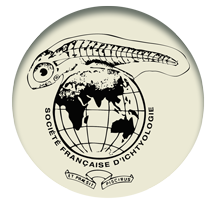Ocean whistleblowers: women’s contributions to maritime knowledge and conservation
Corresponding author: Camille.maze@univ-lr.fr
How to cite: Mazé, C., Cherques, C., Danto, A., Réveillas, J., & Cazé, C. (2022). Ocean whistleblowers: women’s contributions to maritime knowledge and conservation. Cybium, 46(4): 349-355. https://doi.org/10.26028/CYBIUM/2022-464-003
This article focuses on the stories of key women scientists – Rachel Carson, Anita Conti, Aliette Geistdoerfer, Elinor Ostrom and Elisabeth Mann Borgese – who had a major impact on ocean conservation. Through these portraits of women scientists from the Western world, we study their trajectories in the professional world of the sea, an environment dominated primarily by men, and we explore the legacy of these courageous pioneers, to understand their impact on today’s generations of ocean scientists. Their work has allowed to develop a better understanding of marine ecosystems and of the coastal communities that live off the sea and to raise awareness to the impacts of overexploitation and the need to better preserve the ocean. Each contributed to making the protection of the marine environment an international political issue. The authors thus contribute to a necessary historical and sociological reframing of the epistemology of ocean sciences. The aim of this article is not to provide a sociological gender analysis, but rather to give an overview of women leaders in ocean science who have paved the way for new ways of thinking about the ocean and its governance.


